We invite you to imagine. For a moment, think about all of those delicious meals your mother or grandfather used to cook for the family. Think about the flavors, the colorful ingredients, the love and dedication they put into turning a simple dish into an unforgettable and unrepeatable family recipe.
Cooking has always been in our roots, and adding some extra and unique טעמים to the desserts or meals we prepare is a challenge that’s always fun to take.
Today, we invite you to learn and practice a new set of Hebrew words. A list of Hebrew words that will allow you to move better and faster within the kitchen, and to prepare even more delicious food, at least when you need to prepare it in Israel.
With these cooking and kitchen-related Hebrew words, we’ll enable you to surprise your entire family and to learn how to say your favorite ingredients and cooking tools in the language of our matriarchs and patriarchs. Are you ready? Are you hungry? Take some notes, and right after finishing this article, we invite you to cook your favorite dish from the post, where we talked about Israeli street food.
Subscribe to our newsletter
Learn Hebrew slang, take a virtual tour across Israel, discover the best local food and so much more
Kitchen and cooking-related words in Hebrew
So, from fork to the most unique spices, we want to teach you how to say these words in Hebrew. Are you ready to learn and add some wisdom to your eating? Here we go!
Fork: Fork in Hebrew is מזלג (pronounced: mah-zleg), and whenever you need to see if the pasta is ready, or whenever you want to try a piece of פרי, you’ll need one. Of course, it is good to know this in case they don’t bring you one in a restaurant in Israel, which can happen sometimes.
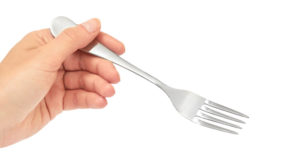
Knife: Cut, cut, cut! Knife in Hebrew is סכין (pronounced: sah-keen). It is one of the most important utensils in a kitchen, and a necessary כלי whenever you are preparing the ingredients of your next, tasty, delicious dish… Unless you are making a cake, and if you do, bring us some because we’d love to taste it!
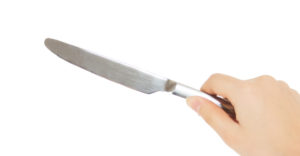
Spoon: Spoon in Hebrew is כף (pronounced: kaf), and if you are looking for a little one for your tea, your coffee, or to measure the amount of baking soda you need to add to your challah or to your empanada dough, then you’ll be looking for a כפית (pronounced: kah-peet).
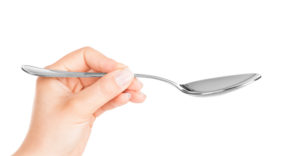
Oven: What an important and useful appliance! Oven in Hebrew is תנור (pronounced: tah-noor), and actually, it is the same as the word for heater in Hebrew, so you have just learned 2 words instead of one! If you are baking anywhere outside of the United States, you should learn not also these Hebrew words, but also the weird conversion from Celsius to Fahrenheit.
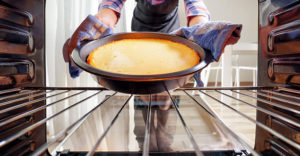
Salt: Let’s do an exercise here! How do you say the “Dead Sea” in Hebrew? Do you know? Yes! Exactly like that! The ‘Dead Sea’ in Hebrew is called ים המלח, and its literal translation is “The Salt Sea”. So, if we already know that ים is sea, how do you say “salt” in Hebrew? Exactly! Salt in Hebrew is מלח (pronounced: meh-lach), but be careful with the amount you add to your next dish, you don’t want a chocolate cake to be too salty, right?
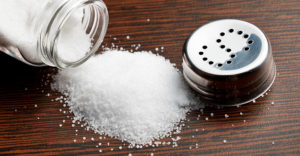
Pepper: So now you’ll learn both how to say pepper and how to refer to a person who is spicy, and has lots of personality and ‘flavor’. The Hebrew word for this is פלפל (pronounced: peel-pehl). See? Not only words you can use for cooking, but we also teach you some more Hebrew slang!
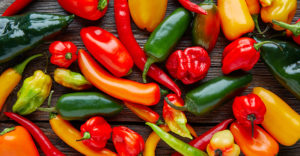
Sugar: Sugar in Hebrew is סוכר (pronounced: suh-kar), and it is a very important word for you to learn. Even if its only to decide how many כפיות סוכר you want in your coffee or tea.
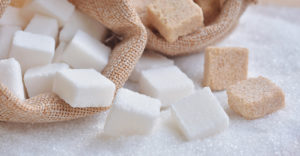
Vegetables: A fundamental part of your children’s diet! Israeli vegetables are very, very tasty and if you ever come to Israel, you should definitely try the local cucumbers and the amazing cherry tomatoes. Vegetables in Hebrew is ירקות (pronounced: yeh-rah-kot), and you have to give them a try.
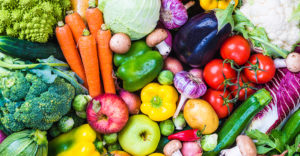
Meat: So here, it depends! If you want to say chicken, the right Hebrew word for you would be עוף (pronounced: off) or, if you want a spring chicken, פרגית (pronounced pahr-gueet); but if you are looking for red meat, then בשר בקר (pronounced: bah-sar bah-kar) is the right Hebrew word you are looking for. Now, if the kind of meat you want for your dish is a salmon fillet or any other sort of fish, then you should ask for דג (pronounced: dag).
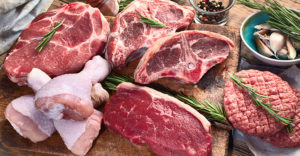
Dough: How amazing is it to make your own dough and with it prepare the most amazing challah or some amazing burekas, right? Dough in Hebrew is בצק (pronounced: bah-tzek), and the secret for making a really good one is not in the quality of the קמח you pick, but in how much love you put into it.
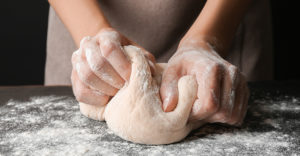
Flour: Yup! Just the word we just used in the previous paragraph. Flour in Hebrew is קמח (pronounced: keh-mach), try to pick a good one and make sure to mix it very well with the ביצים and the other items you might need.
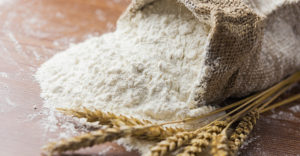
Mixing: An important part of each recipe, is that magical moment in which we mix the ingredients to turn a few items into one big, tasty, delicious thing. Mixing in Hebrew is לערבב (pronounced: leh-ar-beb)
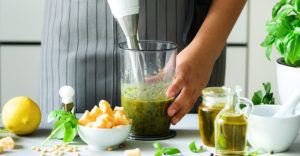
Baking: We’ll give you a tip, if you are looking to rent out your place to come live in Israel for a long period of time, you should bake something while potential renters are visiting your home. Psychological research show that when there is a smell of something just out of the oven, we automatically feel that place is more ‘homey’. Anyway, if you want to know how to say “to bake” in Hebrew, the right word would be לאפות (pronounced: leh-eh-fot)

Fried: Oh! G-d bless fried food! So tasty and so non-healthy! With just saying ‘fried’, the image of some delicious ‘sufganiyot’ comes to our mind. Well, how do you say “fried”? In Hebrew, fried is מתוגן (pronounced: meh-too-gan), and you should definitely try some מתוגן food you haven’t tried before. Have you tried fried sushi, for example? Give it a try!
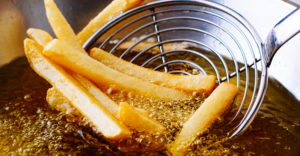
Learn Hebrew today. Cook better.
If you join one of our online Hebrew courses today, you’ll be able to understand sooner how things work in Machane Yehuda in Jerusalem, you’ll get better and more special condiments and spices and you’ll make even tastier dishes.
Participate in one of our online and live Hebrew classes and take your Hebrew to a whole new level. Give it a try and we assure you that you’ll learn way more than just these few words that we sincerely hope you enjoyed a whole lot.













